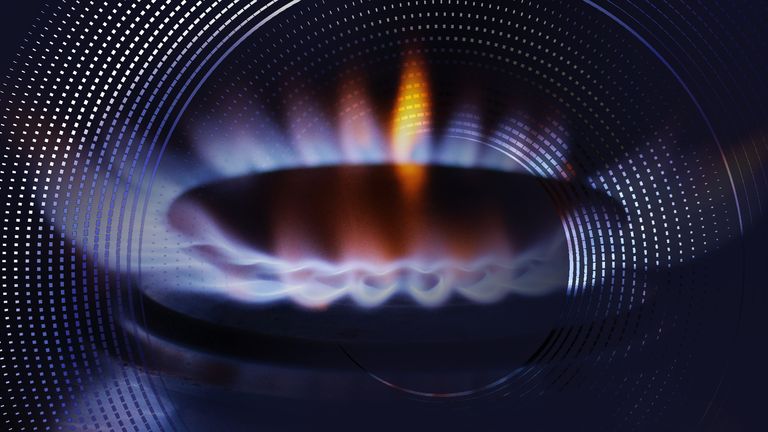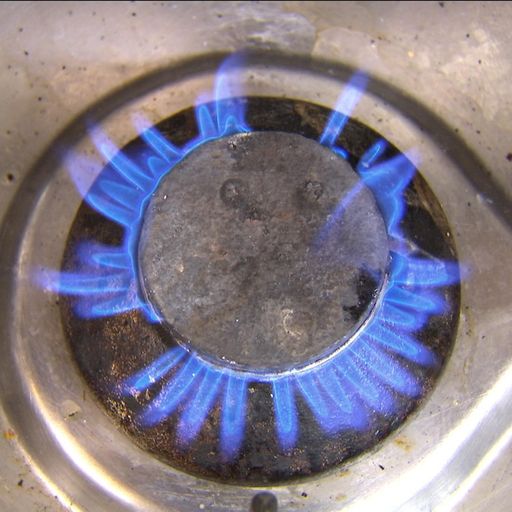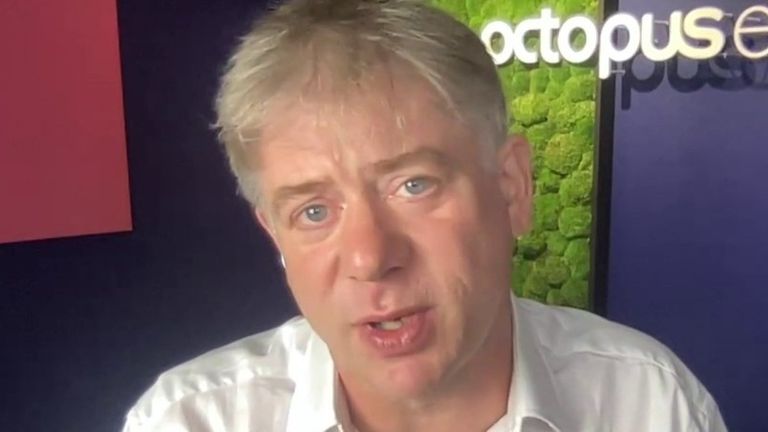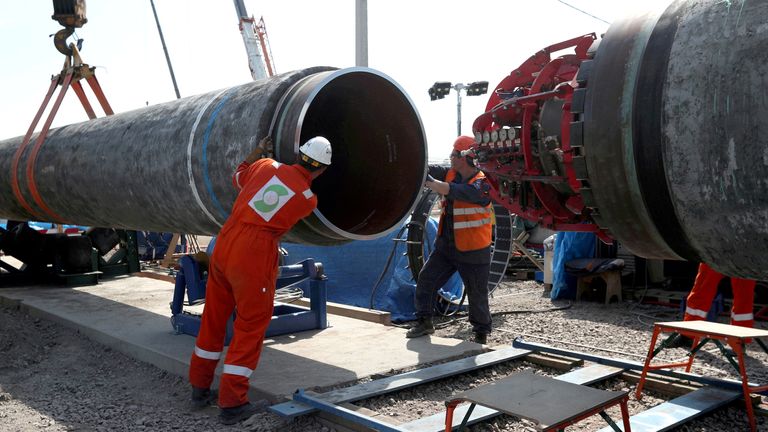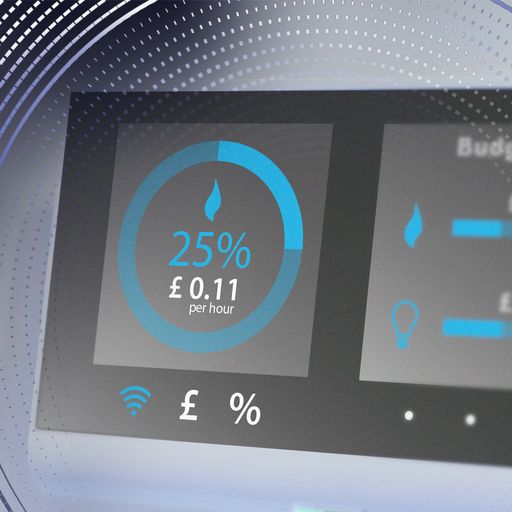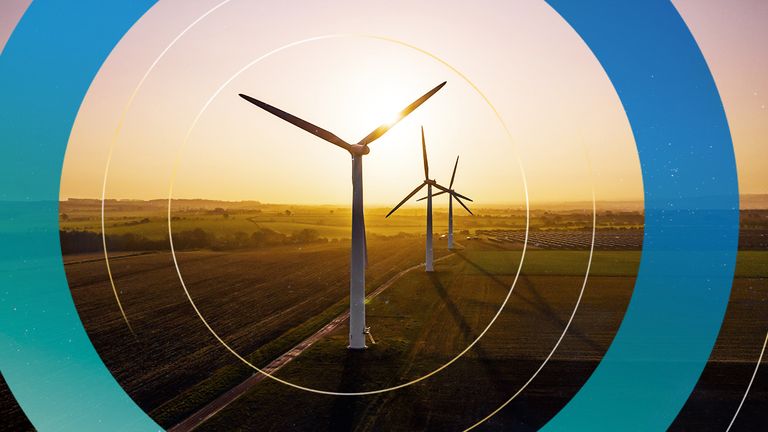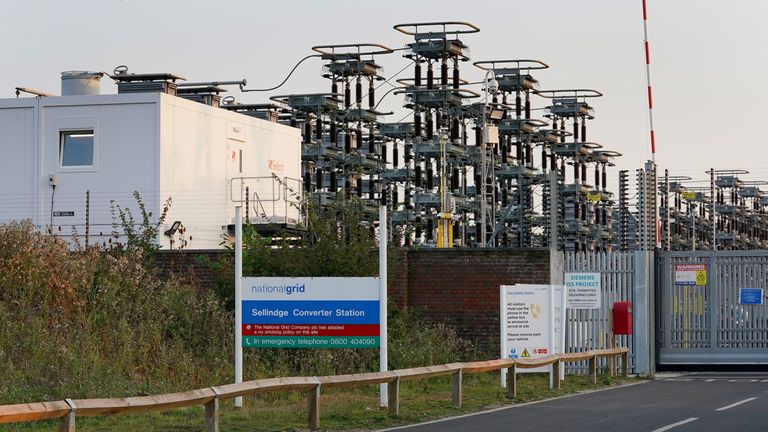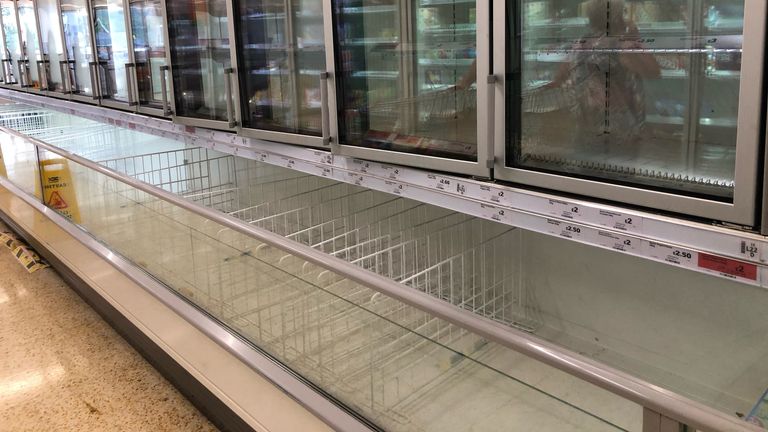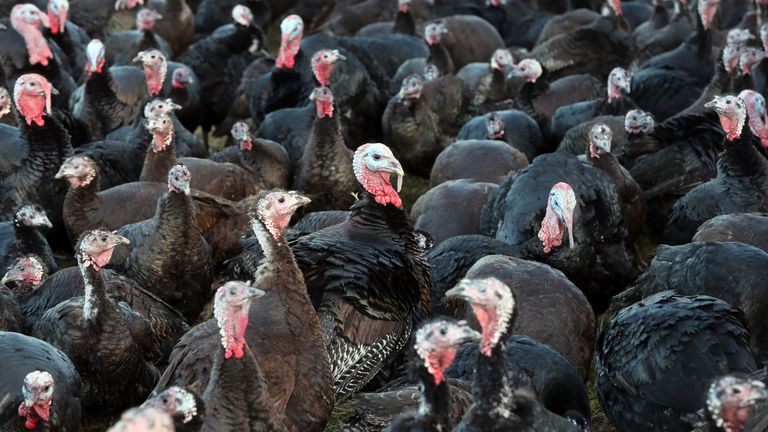Why gas prices have soared and left UK facing prospect of food shortages
The price of gas has rocketed in recent weeks, putting several energy suppliers out of business and prompting warnings of food shortages in UK supermarkets.
Wholesale gas prices have soared by 250% since the beginning of the year, including a 70% rise since August, according to the Oil & Gas UK trade body.
So why is this happening and how is it disrupting the country’s food supplies?
How reliant is the UK on gas?
The gas market is crucial to the UK’s energy supply because of its role in heating, industry and power generation.
More than 22 million households are connected to the gas grid, the UK government says.
In 2020, 38% of the country’s gas demand was used for domestic heating, 29% for electricity generation and 11% for industrial and commercial use.
So why have wholesale gas prices increased?
One of the main reasons is an “uptick” in global gas demand as economies reopen after COVID lockdowns, according to the government.
It says this, combined with a cold winter in 2020-21 which prompted higher demand, has led to a “much tighter gas market with less spare capacity”.
Speaking on a visit to New York, Prime Minister Boris Johnson admitted there were “a lot of short-term problems” caused by gas supply shortages, but he added: “This is really a function of the world economy waking up after COVID.
“This will get better as the market starts to sort itself out, as the world economy gets back on its feet.”
Russia accused of acting to push up gas prices
The European Commission has been asked to investigate the role of Russia’s state-backed gas company Gazprom in soaring gas prices across the continent.
A group of 40 MEPs has said the company’s behaviour had made them suspect market manipulation to push up gas prices.
In a letter, the MEPs said they were suspicious of Gazprom’s “effort to pressure” Europe to agree a fast launch to its Nord Stream 2 gas pipeline, which still has to clear regulatory hurdles that could take months to complete.
The MEPs cited incidents including recent shut-ins of some of Gazprom’s production and said the company had refused to book gas transport capacities through existing pipelines.
“All these factors allow to suspect that the record natural gas price surge in Europe in the recent weeks may be a direct result of Gazprom’s deliberate market manipulation,” the letter said.
In response to the accusations, Gazprom said it supplied its customers with gas in full compliance with existing contracts.
The European Commission said it had received the letter and would reply in due course.
UK’s wind power hit by calmer weather
Calm weather over the past two weeks has cut output from the UK’s 11,000 wind turbines, which account for more than 20% of electricity generation, according to Bloomberg.
It has meant that demand for natural gas to produce electricity has increased and Britain has turned to coal-burning stations to fill the energy shortfall.
Are there other reasons behind the gas price rise?
Other factors include high demand in Asia for liquified natural gas which has meant less than expected has reached Europe.
In the UK, several gas platforms in the North Sea have also closed for maintenance that was paused during the pandemic.
Meanwhile, cables that import electricity from France were damaged last week following a fire.
The National Grid said its site at Sellindge in Kent was evacuated following the blaze on Wednesday morning.
The fire and planned maintenance means it will be offline until 25 September and only half of its two gigawatt capacity available until March 2022.
Why have food suppliers been hit?
The steep rise in gas prices has caused two large fertiliser plants in Teesside and Cheshire which produce carbon dioxide (CO2) as a by-product to shut, hitting supply to the food industry.
CO2 is used in the humane slaughter of livestock and to extend the shelf-life of products. It is also vital to cooling systems for refrigeration purposes, industry leaders have said.
Producers have warned that supplies of meat, poultry and fizzy drinks could all be hit due to the shortage of CO2.
Nick Allen, chief executive of the British Meat Processors Association, has said the country could be two weeks away from British meat disappearing from supermarket shelves.
He told Sky News: “The meat industry, in particular the pig and poultry industry, use CO2 for humane slaughter. Eighty per cent of pigs and poultry are slaughtered using that process.
“CO2 is a by-product of fertiliser. Those plants closed, and they account for about 60% of the CO2 produced in this country. They closed at very short notice with no warning. It really hit us cold.”
Mr Allen said meat manufacturers have said they have between five and 15 days’ supply left.
He added: “Then they will have to stop. That means animals will have to stay on farms. That will cause farmers huge animal welfare problems and British pork and poultry will stay off the shelves. We’re two weeks away from seeing some real impact on the shelves.”
Ranjit Singh Boparan, the owner of Bernard Matthews and 2 Sisters Food Group, said supply issues, as well as a shortage of workers, will affect the supply of turkeys for Christmas.
He said the supply of turkeys was “already compromised” as he needed to find an extra 1,000 workers to process supplies.
“Now with no CO2 supply, Christmas will be cancelled,” he added.
“The CO2 issue is a massive body blow and puts us at breaking point, it really does – that’s poultry, beef, pork, as well as the wider food industry.”
